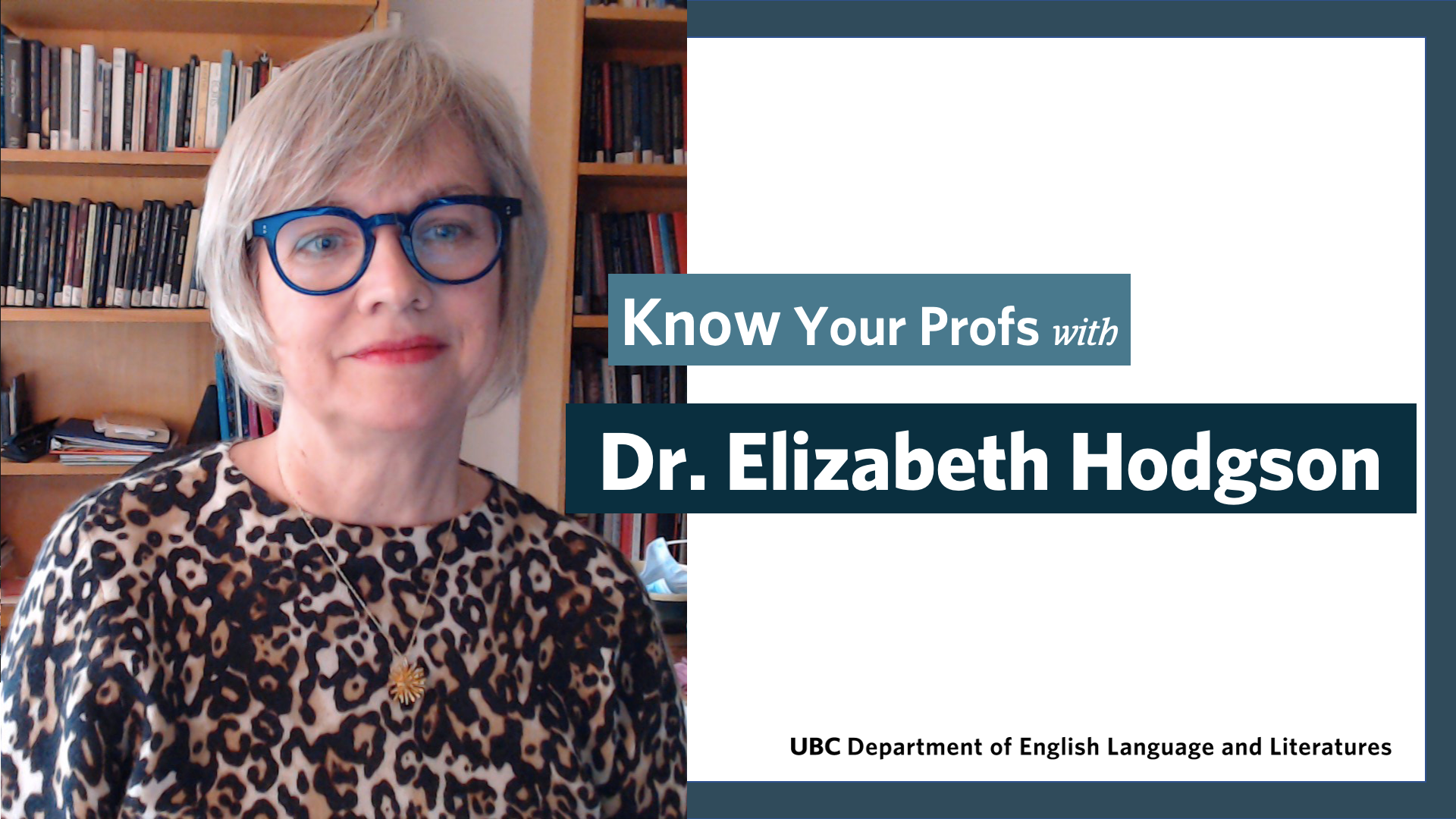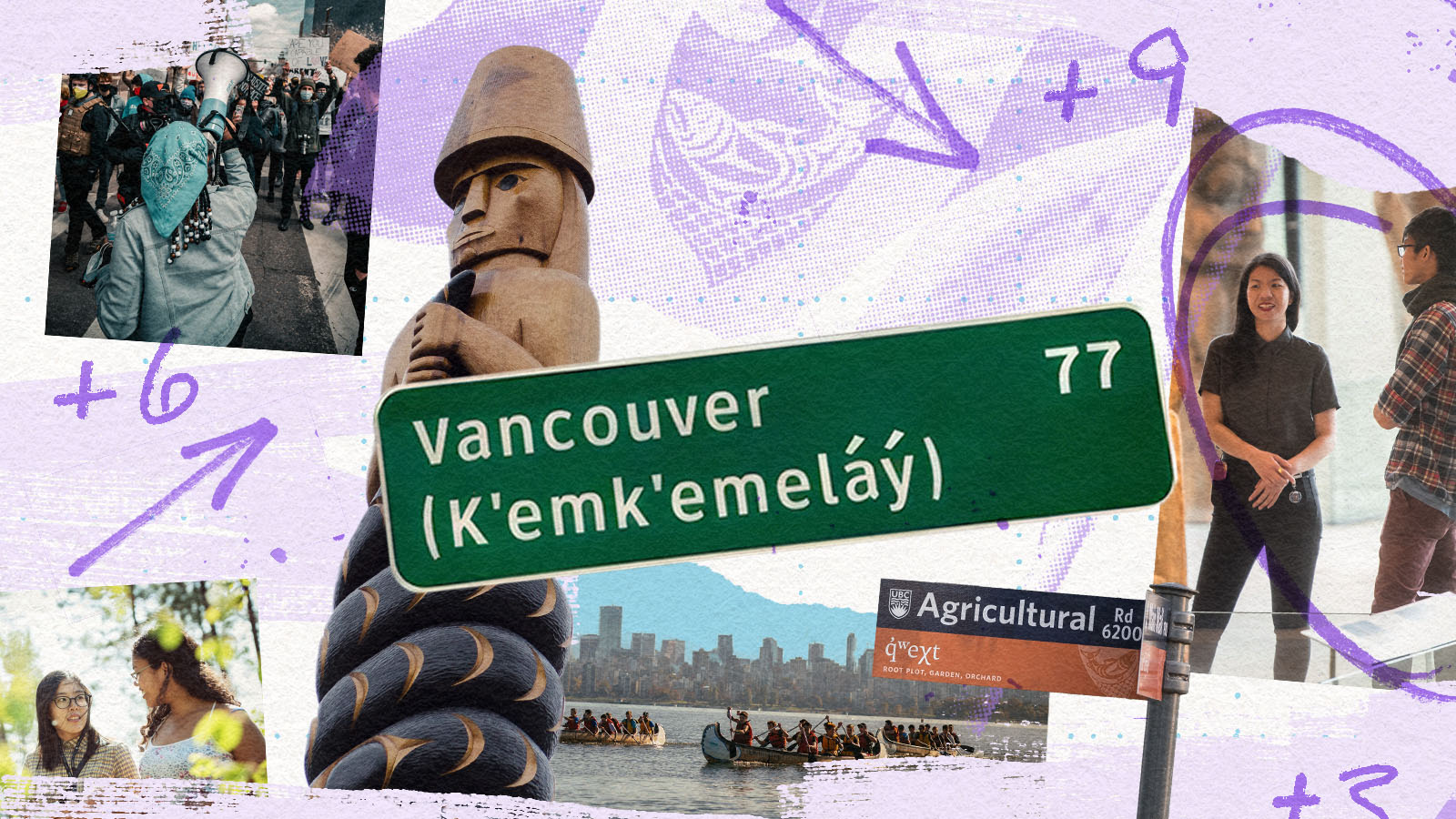

You see them every week in class, exchange emails with them about essay extensions, and go to their office hours when you realize you have a midterm next week. But who are your English Language and Literature professors, really?
Dr. Elizabeth Hodgson studies English Renaissance literature, and has a particular interest in how literary works reflect and influence the cultural contexts within which they are created. Read this installment of Know Your Profs to learn why Dr. Hodgson values small-group discussions in her classrooms, what she loves about meeting students one-on-one, and why a healthy dose of skepticism about Shakespeare’s place in the canon can help to keep the mind open to other perspectives.
What is your area of specialization, and when did you know academia was for you?
I specialized in literatures of the English Renaissance. I’ve been a bookworm since childhood, and I also always really loved playing around with ideas, so academic work has always been my comfort zone. I think I like the Renaissance because the writers from this period are so simultaneously passionate and clever. The cultural history of the Renaissance (wars, turmoil, Elizabeth I, religious revolutions, the start of colonialism) makes it a really important pivot-point in English history, too, and I find that fascinating.
What does it mean to you to study literature?
One of my favourite writers talks about music engaging the heart and mind together; I find that literary study does the same thing for me. I also really appreciate chances to study how literary works reflect and change their cultures. To me, studying literature means thinking about questions like, “do words matter? And can they change the world?”
What do you like about teaching UBC students?
UBC students are fundamentally kind and willing to explore ideas together. I really appreciate that they are open to other perspectives. I especially love working with students one-on-one. It is very satisfying when I can help them to untangle a problem or work past a difficulty.
Which courses do you teach?
I teach upper-level and graduate courses in the English Renaissance. I’ve taught courses on 16th century literature, 17th century literature, Milton, Shakespeare, women writers, gender, and political bodies.
I also teach the 2nd year early survey course ENGL 220: Social Networks from Beowulf to the 18th Century.
What can students expect from your classes?
I teach very collaboratively. Students can expect lots of small-group discussions and student-led workshops. I find this by far the most productive and fun way to learn, and productivity and fun tend to go together. I have clear standards, but I also really encourage students to learn through experimentation.
I will help you to learn if you are willing. I will accept you as you are, but I’ll also help you to grow and stretch. I do my best to make the classroom a professional and encouraging space.
What are your favourite questions students have asked you about English literatures?
“Wait – they had queer sex back then? WHAT?!”
“What do you mean, Shakespeare isn’t the greatest writer of all time?!”
If you weren’t a professor, what would you do with your life?
Oh, I’d probably be running a non-profits arts organization somewhere. Or possibly (just possibly) be a lawyer or mediator.
What advice would you give your first-year and graduating undergrad students?
First-year students: find a community somehow. UBC is SO big. Also, plan to do co-op!
Graduating students: look for mentors, do a career-training workshop, and think about skills and experience as long-term investments.


